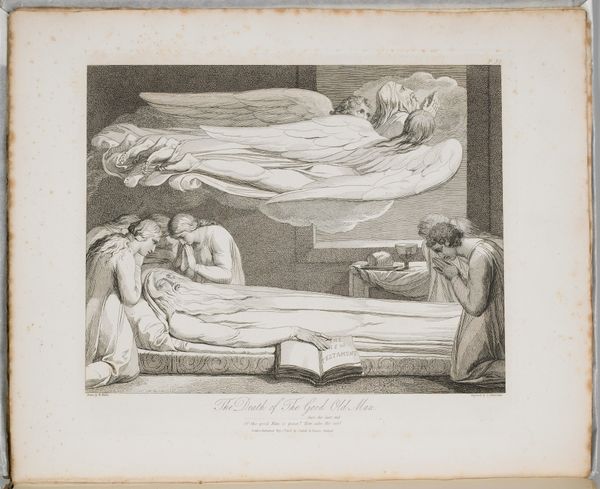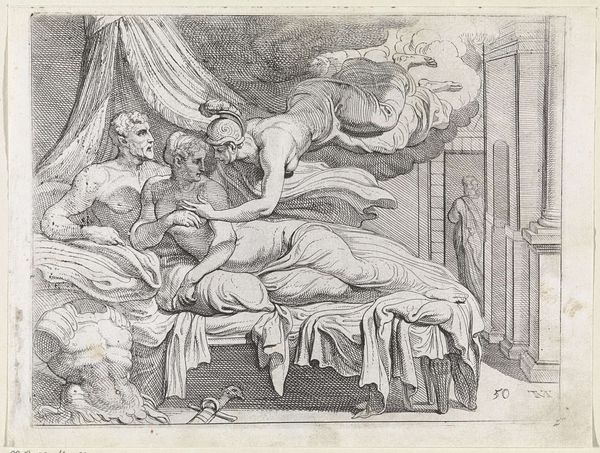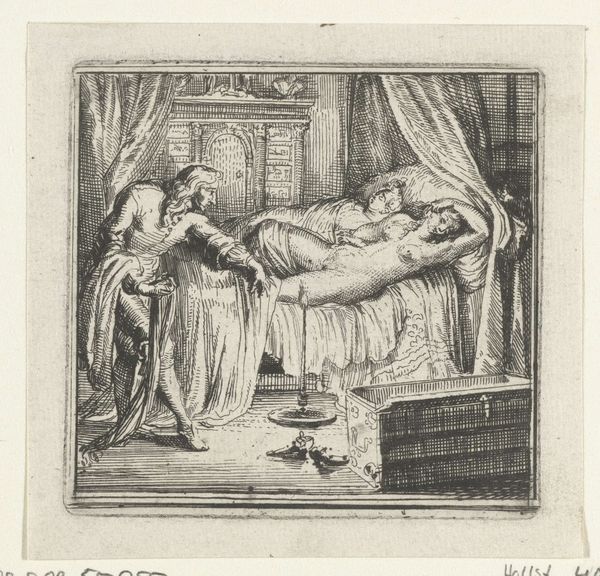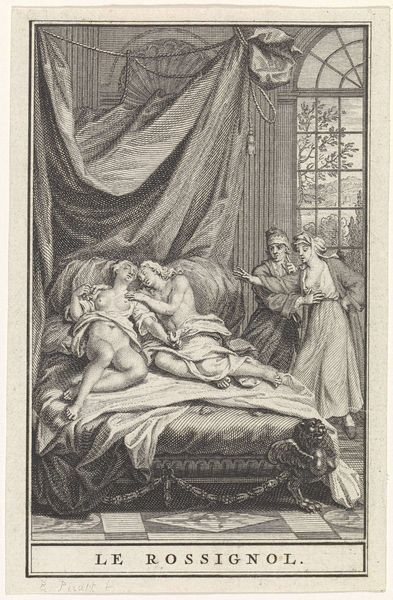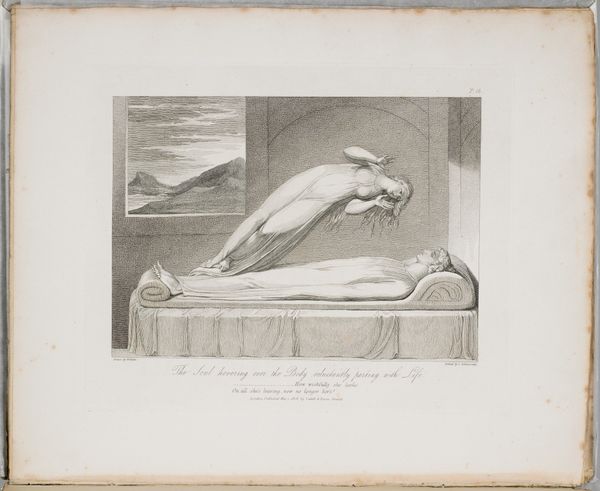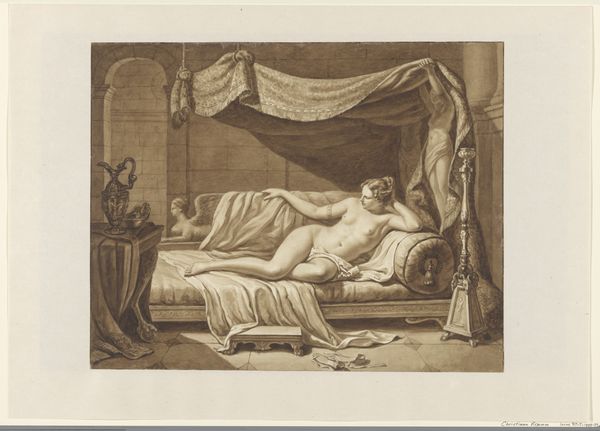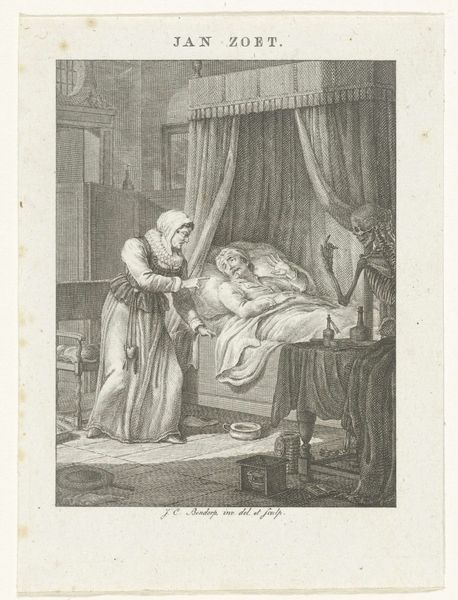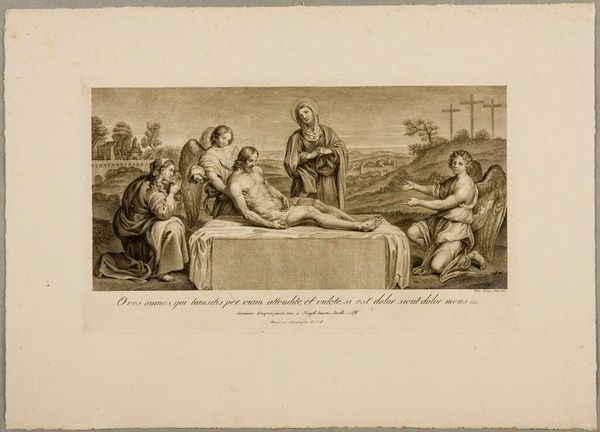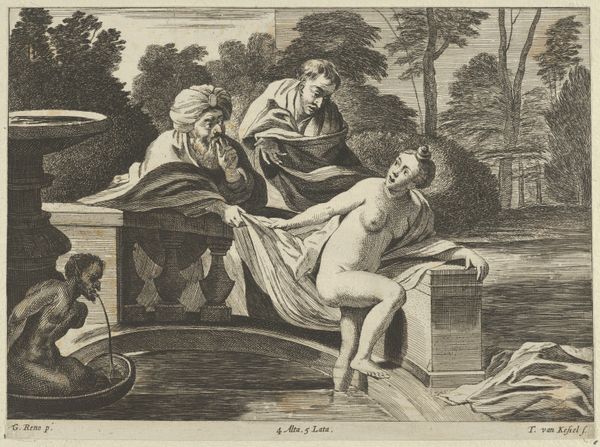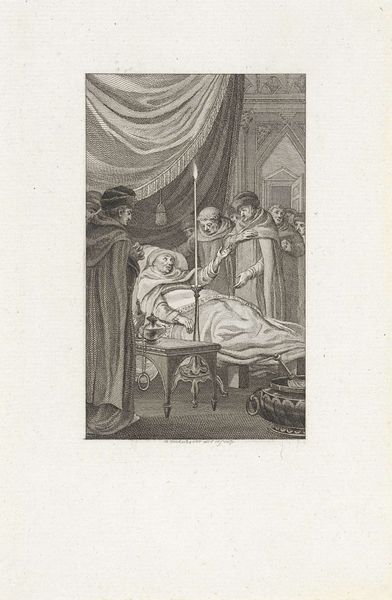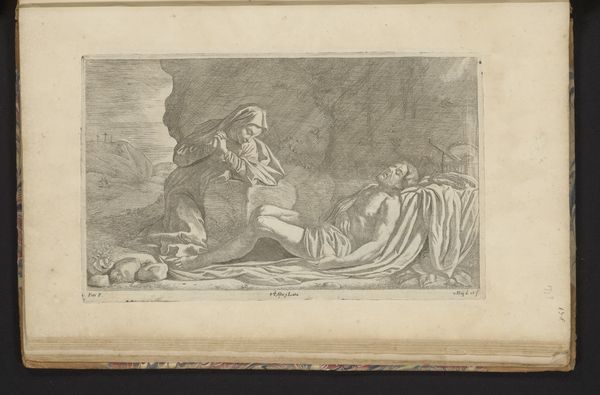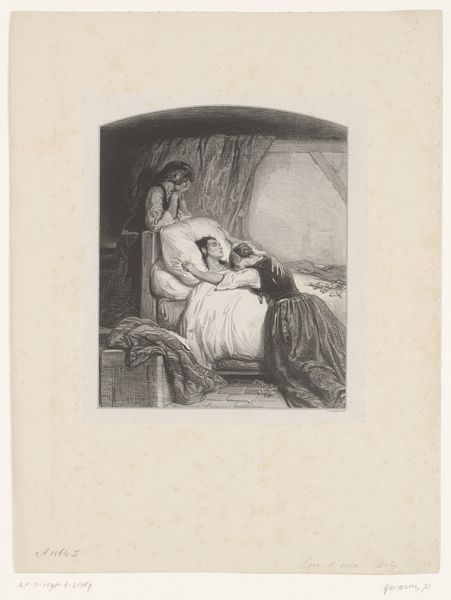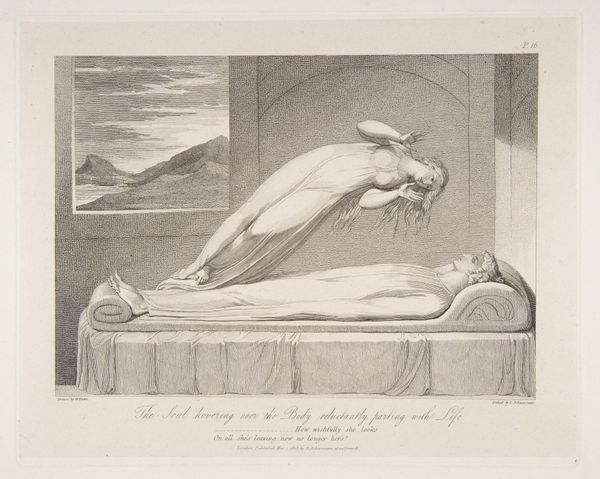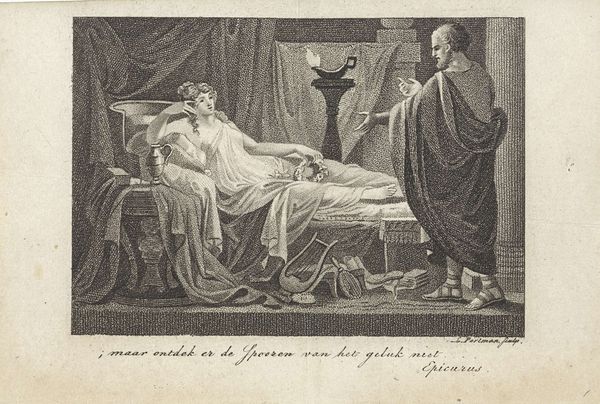
The Death of the Good Old Man, from "The Grave," a Poem by Robert Blair 1813
0:00
0:00
drawing, print, engraving
#
drawing
#
allegory
# print
#
death
#
figuration
#
romanticism
#
line
#
history-painting
#
engraving
Dimensions: plate: 8 x 10 1/4 in. (20.3 x 26 cm) sheet: 9 1/16 x 10 7/16 in. (23 x 26.5 cm)
Copyright: Public Domain
William Blake created this intaglio print, "The Death of the Good Old Man," illustrating Robert Blair's poem "The Grave." Here, the angels carry his soul up towards the heavens. The open book, revealing the words "The New Testament," symbolizes Christian faith and the promise of salvation. Consider the angel motif and the "Imago Pietatis," or "The Man of Sorrows," a common theme in Christian art that depicts Christ displaying his wounds before his ascension. Similarly, the angels' gestures of prayer are ancient symbols across cultures—a plea for divine intervention. From antiquity to the Renaissance, we find figures with raised hands, a universal expression of hope and supplication. Think of how these motifs echo through time, resurfacing in varied forms, each carrying the weight of countless prayers and expressions of human hope. This collective memory imbues the image with a power that engages us, stirring deep emotions, and a shared human experience. The image encapsulates a timeless narrative of mortality and spiritual hope, and through Blake's artistry, these archetypal motifs converge, inviting viewers to contemplate the cyclical nature of life, death, and rebirth.
Comments
No comments
Be the first to comment and join the conversation on the ultimate creative platform.
